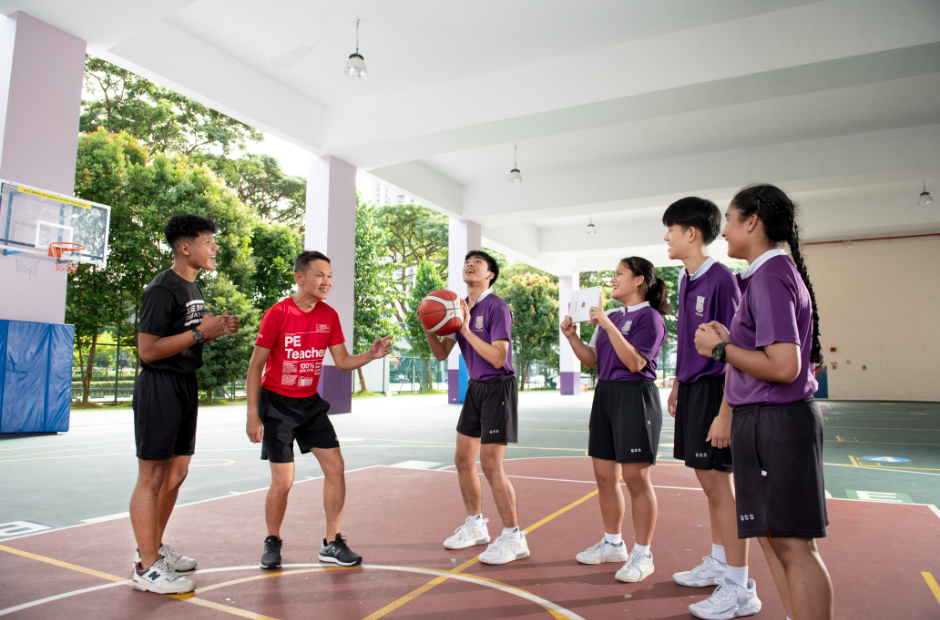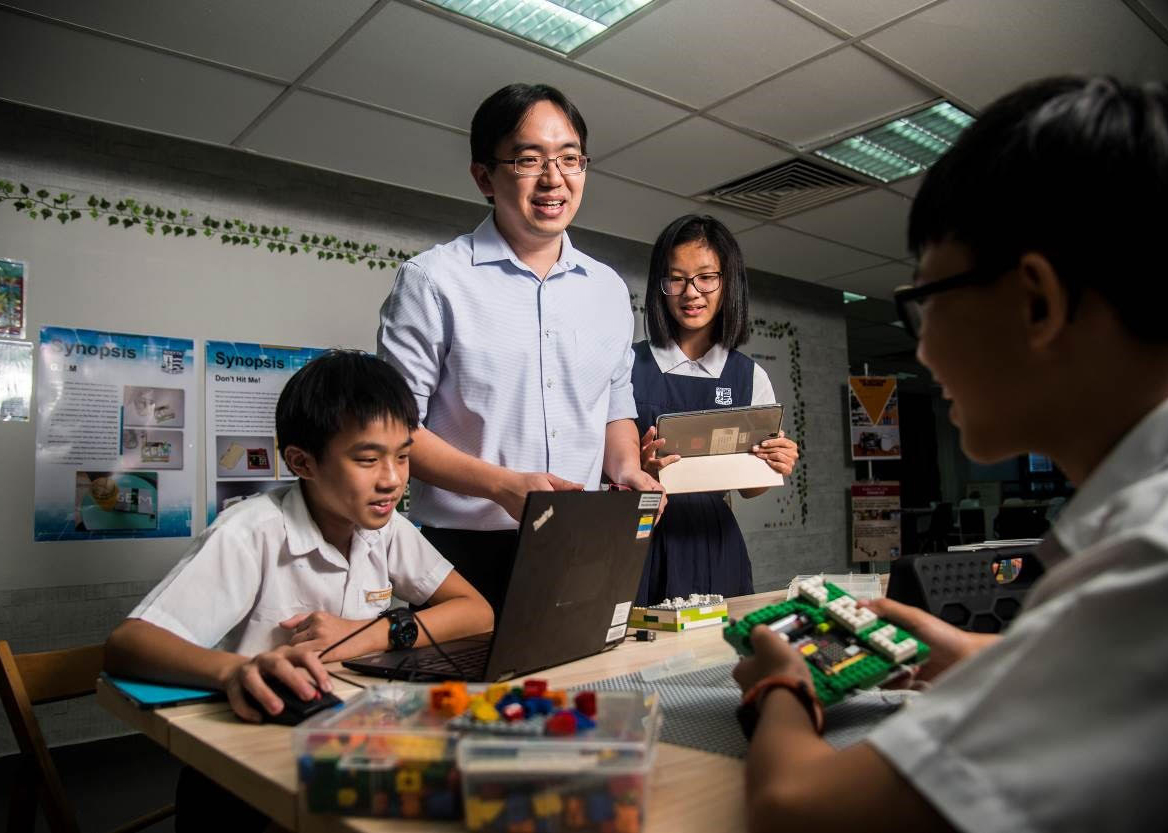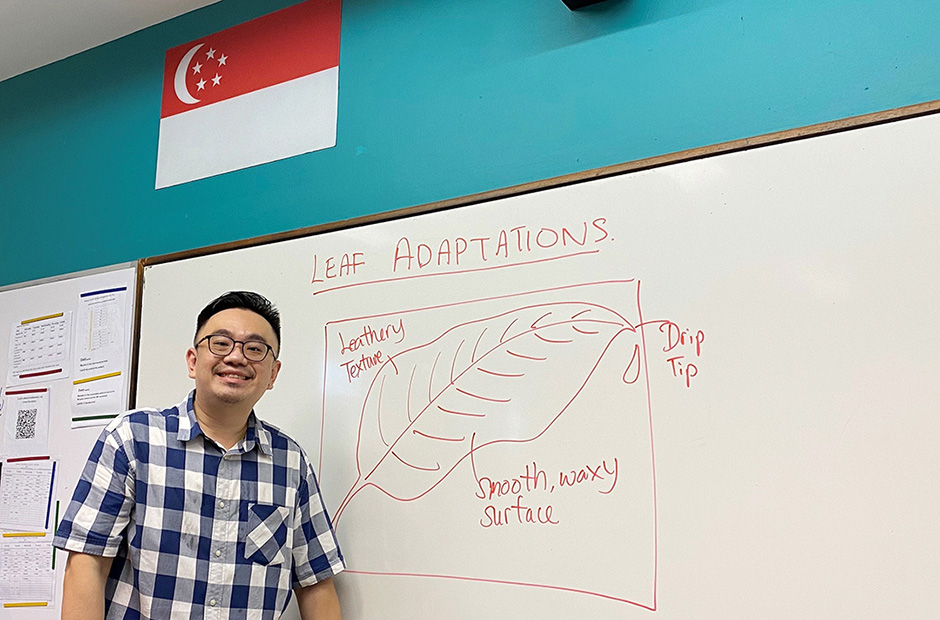Mr David Kelvin Vaithilingam, Meridian Secondary School, President’s Award for Teachers 2019 Finalist
They are the Red Shirts of Meridian Secondary School, a group of students who work at building a sense of belonging and school spirit.
Set up by David Kelvin Vaithilingam in 2004, they are Meridian’s gung-ho, get-things-done “gang”, running a slew of bonding, character-building school activities – from the Secondary 1 orientation camps and student leadership camps to the cross-country run and the National Day Parade.
Starting out as a group of 20 in what was then Coral Secondary School, it is today a Meridian Secondary institution with 90 members.
The idea grew out of something similar that David had experienced at Victoria School during his own secondary school days. As a teacher, he wanted to include students in running some of the programmes, so he brought together students with leadership potential. To give them a sense of identity, he got them red t-shirts. They started calling themselves the Red Shirts, and it just took off.
“All students should be given an opportunity to develop their leadership potential,” believes David. “They grow up and even the most ill- disciplined ones mature. When they meet you outside, they are respectful and thankful. They succeed in their own ways and some will surprise you.”
The strength of this community is seen in the many alumni, who continue to participate
with their juniors in the group activities.
Only solutions
So, what makes the Red Shirt such a powerful motivator?
From the start, the idea is to give all students a chance to learn, to take on responsibility, and to grow in confidence, says David, who comes from a family of PE teachers – his parents, wife, siblings and their wives are all PE teachers.
The students organise camps and they do everything associated with the event: from
organising the games to putting together wet-weather back-up plans. David and the other PE teachers act as advisors.
Yes, the teachers could do it faster, but David believes that it is important to allow
students to learn to do all these and develop confidence in their abilities.
One of David’s mantras for his student leaders is “Don’t give me the problem, give me the solution.” He trains his students to be problem-solvers. This spirit is exemplified by a story that was told to David. A colleague had asked one of the students if he knew where to get more chairs for an event. That student said he didn’t know. When a nearby Red Shirt was asked, the response was, “I have no idea, but I’m going to go and find out.”
Voice of the student body
With the growing popularity of this enthusiastic group of student leaders, David was soon asked to supervise the prefects as well.
He took this on, re-designating the prefects as student councillors, and changing their job description as well. They were to be the voice of the student body, instead of handling discipline issues like guarding staircases and looking out for litter bugs.
The student councillors carry out surveys, and identify issues that need to be addressed. One of their findings was that students wanted to wear polo shirts to school. Today, students only need to wear their full school uniforms on Monday mornings.
Conquering mountains
David plans joint activities for the student councillors and Red Shirts too, such as the overseas trip at the end of Secondary 3. This event is an expedition designed to challenge the students. In 2018, for example, the students climbed Snow Mountain in Taiwan, which is 3,886m above sea level.
To train for it, the students trained for three months by climbing stairs. Plenty of stairs. They went up and down the 13-storey apartment block near the school. And they did it nine times per training session while carrying backpacks stuffed with heavy water bottles.
Being physically fit was only one aspect. During the trip, students had to deal with altitude sickness. Sometimes, they helped fellow students, who were struggling, carry their load. It wasn’t easy, but everyone helped one another.
The point of the expedition is to develop students’ physical and mental resilience. The
one takeaway that David wants for his students is to know that they can overcome challenges – if they can climb a mountain, they can do just about anything.
About turn
In the same spirit that anything is possible when you put your mind to it, David does not shy away from picking students who have had disciplinary problems in the past to be part of this group.
Bernice Quek was one such example. She had leadership qualities, but she was disruptive and abrasive in class. David took a chance on her, telling her that she could only don the red t-shirt if she changed her behaviour. And she did. “She ended up being such a fantastic student leader,” says David.
Bernice subsequently went on to get a degree from Nanyang Technological University and she is now a writer. Earlier this year, she penned an article where she shared how becoming a student leader changed her for good.
David wants to help students with rough edges like Bernice. He says, “I want to give these students a chance, so that they look back on their secondary school days and say: ‘There were people who believed in me’.”






